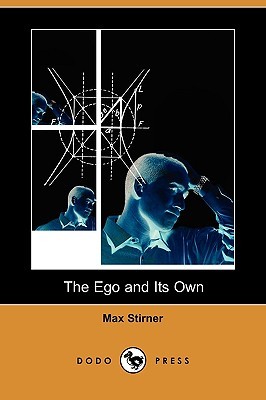
- We will send in 10–14 business days.
- Author: Max Stirner
- Publisher: Dodo Press
- ISBN-10: 1409961265
- ISBN-13: 9781409961260
- Format: 15.2 x 22.9 x 2.1 cm, minkšti viršeliai
- Language: English
- SAVE -10% with code: EXTRA
Reviews
Description
Johann Kaspar Schmidt (1806-1856), better known as Max Stirner (the nom de plume he adopted from a schoolyard nickname he had acquired as a child because of his high brow, in German 'Stirn'), was a German philosopher, who ranks as one of the literary grandfathers of nihilism, existentialism, post-modernism and anarchism, especially of individualist anarchism. In 1842 his first work, Das Unwahre Prinzip Unserer Erziehung (The False Principle of Our Education) or Humanism and Realism, edited by Marx, was published. His main work, Der Einzige und sein Eigentum (The Ego and Its Own, also known as The Ego and His Own), was published in 1844 in Leipzig. In it he launches a radical anti-authoritarian and individualist critique of contemporary Prussian society, and modern western society as such. He offers an approach to human existence which depicts the self as a creative non-entity, beyond language and reality. His other works include Art and Religion (1842), Recensenten Stirners (Stirner's Critics) (1845) and Geschichte der Reaction (History of Reaction) (1851).
EXTRA 10 % discount with code: EXTRA
The promotion ends in 21d.22:18:27
The discount code is valid when purchasing from 10 €. Discounts do not stack.
- Author: Max Stirner
- Publisher: Dodo Press
- ISBN-10: 1409961265
- ISBN-13: 9781409961260
- Format: 15.2 x 22.9 x 2.1 cm, minkšti viršeliai
- Language: English English
Johann Kaspar Schmidt (1806-1856), better known as Max Stirner (the nom de plume he adopted from a schoolyard nickname he had acquired as a child because of his high brow, in German 'Stirn'), was a German philosopher, who ranks as one of the literary grandfathers of nihilism, existentialism, post-modernism and anarchism, especially of individualist anarchism. In 1842 his first work, Das Unwahre Prinzip Unserer Erziehung (The False Principle of Our Education) or Humanism and Realism, edited by Marx, was published. His main work, Der Einzige und sein Eigentum (The Ego and Its Own, also known as The Ego and His Own), was published in 1844 in Leipzig. In it he launches a radical anti-authoritarian and individualist critique of contemporary Prussian society, and modern western society as such. He offers an approach to human existence which depicts the self as a creative non-entity, beyond language and reality. His other works include Art and Religion (1842), Recensenten Stirners (Stirner's Critics) (1845) and Geschichte der Reaction (History of Reaction) (1851).


Reviews